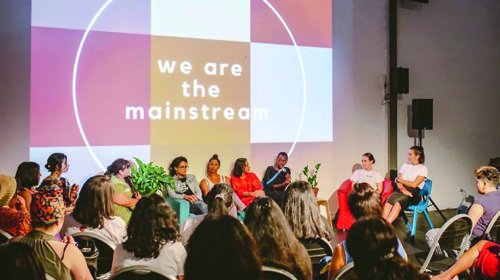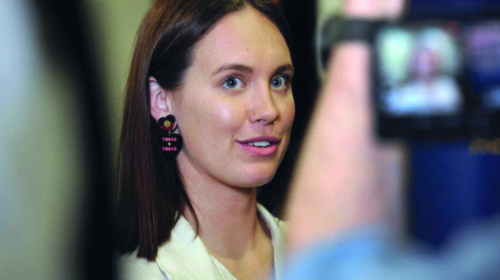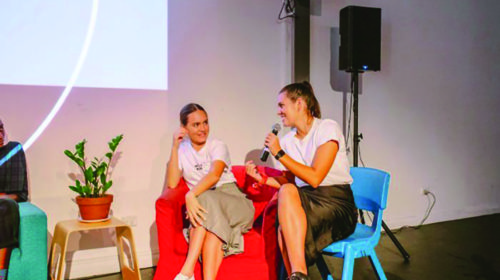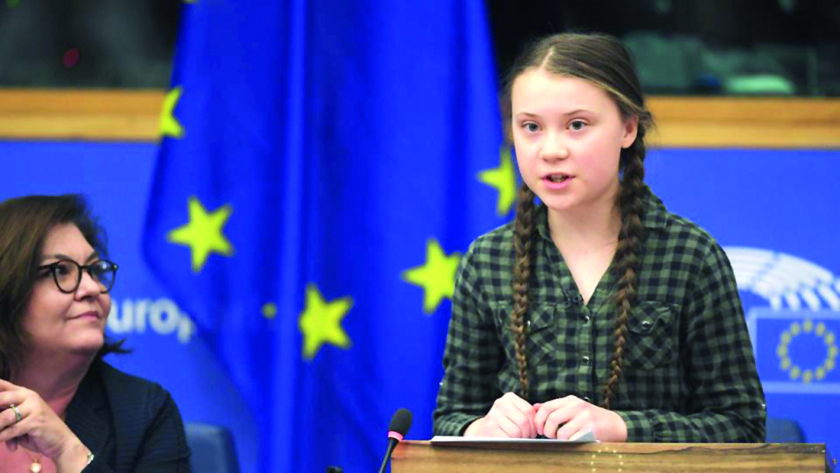
equity over equality
By Marlee Silva for ABC News
International Women’s Day was a rather foreign event on the calendar during my high school years of the early 2010s.
In fact, the only time I’d hear it mentioned was when my pubescent, male peers would make sexist jokes about us females belonging in the kitchen, or whine in the playground about the lack of an international men’s day.
I had a relatively progressive friend group at the time, but none of us ever seemed to think the annual event had much weight or meaning for us — the average teenage girls of Sydney’s suburbia — even despite our impassioned discussions about the gender wage gap at sleepovers.
Fast-forward to 2020, I’m now someone whose everyday life is focused on raising the voices of Aboriginal and Torres Strait Islander females through my podcast and social media initiative @tiddas4tiddas.
I’ve completed my honours study in the misrepresentation of our Indigenous women on screen, and have dedicated myself to improving the experiences and visibility of our women.
It’s safe to say a huge amount of my time is focused on thinking about woman-ness and driving action toward equality.
But International Women’s Day remains something I don’t particularly look forward to.
This time, it’s different
That’s not to say there’s necessarily negative feelings that come with the day for me. I just don’t know whether it’s really something for me to participate in as a Gamilaroi and Dunghutti girl, whose tiddas (sisters) are facing a ceiling made of concrete, not glass.
If you visit the International Women’s Day (IWD) official website, you’ll be greeted with plenty of photos of black and brown women on the home page posing with one arm over the other, making an equal sign, reflecting this year’s theme: #eachforequal.

Sure, it looks lovely and diverse and open armed for all, but I can’t escape the inherent feeling of whiteness that comes with this day.
When you consider its history as a concept that emerged in the early 1900s alongside the suffragettes and other women’s movements across Europe and America — which were conducted by primarily white, wealthy women — that makes total sense, too.
Much like traditional feminist ideology, developed by white women seeking a reclaim of power for them to be equal to the white man, the story of this day does not include non-white contexts, perspectives or needs.
But despite my indifference to this annual day of female recognition and focus, 2020 has already shown me that this time it is different.
I got to kick off my IWD campaign with an event exclusively held for and run by women of colour held in Western Sydney.
It was called We Are The Mainstream, and there, surrounded by females and non-binary brown and black folk from so many different communities and worlds sharing their stories and experiences when they’ve otherwise not had the chance, I found the potential for the power of this global day.
What does #eachforequity mean for us?
When non-white female voices are heard and the rest of the world understands the extra hurdles and unique challenges faced by them, they can have energy and resources directed at them to be addressed first.
In an ideal world, this will bring us closer to equality within our gender, making us stronger and more united before we tackle the larger barrier of the gap between us and our binary opposites, males.
There’s no singular female experience or one way “to be a woman”, but our differences and what we can learn from each other can be our greatest strengths.
I am also set to participate in a series of International Women’s Day events and speaking engagements this March, in majority-white spaces — and for this, I have an infiltration plan I encourage others to follow.
I’m so privileged to be asked to enter the rooms I do, quite often as one of very few women of colour, where I am able to speak my truth, celebrate and champion the stories of the women I share on my platform every day and call attention to the elephants in the room.

So this International Women’s Day, wherever I get the chance, I will be challenging every room I address to consider not what #eachforequal means to them, but what #eachforequity means for us.
Intersectionality is non-negotiable in 2020. It’s vital that all of us understand our individual privilege in our class and race and, in turn, what our responsibilities are in making room for others, leaving open the doors we break down and generally dismantling all the inequalities that exist between us females.
So, here’s to a near future when a truly “each for equal” may exist for all, in board rooms, parliaments and all power structures across the world.



